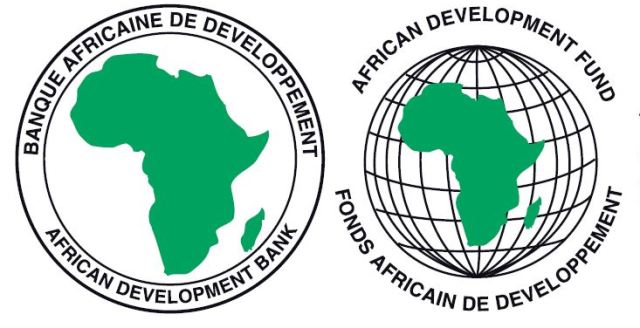Presidents of Madagascar and Tanzania have praised Africa50 for its vital contribution to tackling the continent’s infrastructure challenges. Africa50 has successfully mobilized over $1.1 billion in capital commitments and catalyzed an additional $4.4 billion in external financing within just seven years, according to Akinwunmi Adesina.
Established by African governments and the African Development Bank, Africa50 is exceeding expectations by closing critical funding gaps for infrastructure through innovative financing mechanisms and strategic partnerships. This was discussed during Africa50’s 2024 Annual General Shareholders Meeting held in Antananarivo, where Madagascar’s President Andry Rajoelina and Tanzania’s President Samia Suluhu Hassan highlighted the institution’s essential role in addressing infrastructure and economic challenges across the continent, thereby laying a foundation for sustainable development and prosperity.
President Rajoelina emphasized Africa50’s transformative impact by mobilizing funding for large-scale infrastructure projects both in Madagascar and throughout Africa. He noted that Madagascar, rich in natural and renewable resources, is positioning itself as a model for energy transition and requires the support of international partners like Africa50.
“To realize our vision, we need the support of international partners, and this is where the role of Africa50 members is crucial. We need to collaborate to secure funding for ambitious projects and facilitate Madagascar’s transition to green, sustainable energy. This is a challenge for all of Africa,” the president stated. He also mentioned that the continent has a unique opportunity to assert itself as a global leader in combating climate change by backing innovative and sustainable projects. “Africa is not the problem; Africa is the solution.”
In remarks delivered by Tanzania’s Minister of Finance and Planning, Mwigulu Lameck Nchemba Madelu, President Samia Suluhu Hassan characterized clean cooking as an international agenda that must be treated as a business priority. The International Energy Agency reports that nearly one billion people in Africa rely on polluting fuels for cooking, resulting in serious health impacts and approximately half a million premature deaths annually. Nevertheless, the cost of addressing the clean energy issue is relatively low.
The Tanzanian leader urged the promotion of clean cooking microfinance options, recommending low-interest loans for households to purchase clean cookstoves, thus easing the transition to clean cooking solutions. “It is crucial to make clean cooking affordable, especially in low-income areas. Governments can introduce effective incentives for producers and consumers to lower the costs of cooking materials,” the Tanzanian president added.
The meeting convened global leaders, policymakers, investors, and infrastructure experts to strategize on actions needed to mobilize investments for a sustainable future in Africa.
“The fact that Africa50 is exceeding expectations and bridging the funding gap by addressing today’s challenges through innovative financing mechanisms and strategic partnerships is encouraging news for Africa and the world,” stated Dr. Akinwunmi Adesina, President and Chairman of the Boards of Directors of the African Development Bank Group, in a keynote speech at the event.
Adesina, who also chairs the Africa50 Board of Directors, revealed that Africa50 has mobilized over $1.1 billion in capital commitments and catalyzed an additional $4.4 billion in external financing since its inception. “Its portfolio consists of 25 transformative projects across 28 countries, with a total value exceeding $8 billion in sectors such as energy, transport, digital infrastructure, education, and healthcare.”
In December 2023, the Africa50 Infrastructure Acceleration Fund (IAF) achieved a first close of $222.5 million from predominantly African investors, marking a first for the continent.
Africa50’s Vision for the Future
With Africa’s population projected to reach 2.5 billion by 2050 and an expanding consumer market, the continent is set to become one of the most attractive investment destinations globally, Adesina stated at the meeting. “We are committed to continuing to mobilize capital, overcome investment barriers, and deliver transformative projects.”
Africa50 CEO Alain Ebobissé highlighted that over the past year, the institution has invested in key infrastructure projects, emphasizing the urgency for swift and scalable implementation across the continent. “Investors manage more than $2.3 trillion in Africa. Africa50 aims to mobilize and catalyze some of this capital to finance infrastructure in Africa,” he said.
Ebobissé also pointed to the Infrastructure Acceleration Fund as a notable achievement, describing it as the first of its kind in Africa. “This fund represents a significant advancement in mobilizing African capital to close the continent’s infrastructure gap,” he added.
In 2023, Africa50 demonstrated its potential by facilitating substantial foreign direct investment in clean energy, even as global FDI decreased by 3%. With more than 60% of the world’s solar energy potential, Africa has a remarkable opportunity to pursue a low-carbon energy pathway, expand electricity supply, and decarbonize its economies.
Madagascar, recognized as the world’s fourth-largest island nation, was cited as an example of how infrastructure development can drive economic growth. The African Development Bank’s commitments in Madagascar exceed $1 billion, primarily focused on transport, energy, and agriculture, which together account for over 97% of the portfolio.
The flagship Sahofika project is set to become a benchmark for green baseload in the country’s energy mix, aiming to reduce thermal power generation to below 10% and lower the country’s generation costs by over 30%.
The African Development Bank remains dedicated to aiding Madagascar in enhancing connectivity and promoting trade across the continent through sustainable transport infrastructure projects, Adesina emphasized.
“Thanks to the corridor development and trade facilitation project, 165 km of roads, including the Analamisampy-Manja section and four bridges on the RN9, have been constructed, reducing travel time from 48 hours to just five hours,” Adesina remarked.
“Improvements in transport infrastructure are also revolutionizing trade and travel, significantly cutting travel times along key corridors from 48 hours to only five hours,” he added.





